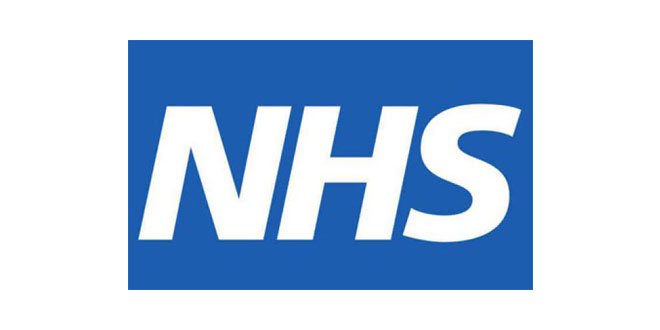NHS Could Be Short Of 51,000 Nurses By The End Of Brexit Transition Period, Warns New Report
 A new report commissioned by a coalition of 36 health and social care organisations, reveals the NHS could be short of 51,000 nurses – enough to staff 45 hospitals – by the end of the Brexit transition period.
A new report commissioned by a coalition of 36 health and social care organisations, reveals the NHS could be short of 51,000 nurses – enough to staff 45 hospitals – by the end of the Brexit transition period.
The report Brexit and the Health and Social Care Workforce in the UK – by the National Institute of Economic and Social Research (NIESR) – also highlights the increasingly crucial role EEA nationals are playing in UK social care services.
The NIESR report – commissioned by the Cavendish Coalition – forecasts a potential shortfall of around 5,000 to 10,000 nurses in the NHS in England by 2021. That is on top of existing vacancies, which stood at 41,722 (11.8% of all positions) at the end of June, the latest period for which NHS Improvement figures are available1.
To put these figures into context, the small to medium-sized Royal Surrey County Hospital NHS Foundation Trust employed 1,141 nurses in June2.
Meanwhile, between 2011 and 2016, the number of EEA nationals employed in social care grew by 68 per cent, or 30,600 people. There were 42,000 registered nurses working in adult social care in England in 2017, with almost a third of registered nurses (32.4%) estimated to have left their role within the past 12 months. It meant a vacancy rate of 12.3%, equivalent to around 5,000 vacancies at any given time3.
While it is anticipated there will be provision for doctors and nurses coming to the UK after Brexit, if the government follows the guidance of this autumn’s Migration Advisory Committee report, as it has indicated it will, there could be significant implications for the social care workforce in particular. The sector relies on lower paid colleagues who would be effectively cut off by a salary threshold of £30,000 and with no special allowance like that recommended for seasonal agricultural workers.
Health and social care relies heavily on staff from the EEA and the rest of the world. In the UK, a little over 5% of the regulated nursing profession, 16% of dentists, 5% of allied health professionals and around 9% of doctors were from inside the EEA.
The Cavendish Coalition is warning that the future immigration system must enable the health and social care system to continue to attract the brightest and best from the EU and the rest of the world if health and social care services are to be appropriately staffed after Brexit.
Danny Mortimer, co-convenor of the coalition and chief executive of NHS Employers, said: “These startling figures should be taken extremely seriously by those negotiating our departure from the EU.
“The health and social care sector is deeply reliant on talented colleagues from across Europe and the rest of the world so it is deeply disheartening to see these projected workforce gaps at a time of rising demand for services.
“We know we need to do more ourselves to strengthen staff retention and reduce turnover, but we are also reliant on decision-makers to ensure the UK remains an attractive prospect for our valued and talented colleagues from the EU and rest of the world.
“The health and social care sector desperately wants to retain the EU nationals working in our services now and need the welcome process for registering for settled status to be honoured if no deal is agreed with the EU27
“In parallel we need to ensure the development of the future immigration system is responsive and agile, with as little red tape as possible, and that it uses public service value as a key factor in assessing skill levels and setting entry requirements rather than just salary.
“This will help tackle the often misleading assumption that the salary paid to a migrant worker is the prime indication of the value of their work to the health and wealth of the UK.”
Dr Heather Rolfe, Associate Research Director at NIESR, said: “Our research findings highlight the fact that migrants are an essential part of the health and social care workforce, often found in shortage specialties and localities where it is hard to recruit.
“Measures designed to increase recruitment from within the UK like ‘return to work’ schemes have potential to help fill gaps left by falling migration to the UK. However, they will take some time to take effect and are very unlikely to produce sufficient numbers to make up for a shrinking EU workforce.”
Dr David Nguyen, economist at NIESR and one of the co-authors of the report, added: “We need to account for the fact that the share of EEA nationals differs considerably across regions as well as job roles, which can lead to bottlenecks and potentially lower quality of care in some places.
“For example, while half of the NHS in England staff from the UK works in clinical roles, this figure increases to two-thirds for EEA nationals. Similarly, some regions have twice as many doctors or nurses from inside the EEA than others.”
Early evidence is not promising. In the 12 months since the referendum, before the UK has formally left the bloc, the number of EEA nurse joiners to the NHS in England fell by 17.6% while the number of leavers rose by 15.3%.
Among the recommendations in the report are:
- Any future immigration system needs to be uncomplicated to operate. It should also be transparent and cost effective for applicants, and responsive to the changing health needs of the population. At present, many social care and health jobs do not fulfil the requirements for the minimum skills or salary levels of the current non-EEA immigration system. If a future immigration system is to be modelled on the current non-EEA system, it will need to acknowledge the value and contribution of the health and social care workforce and adjust skill and salary levels accordingly to minimise any further detrimental impact to workforce supply.
- The UK and devolved governments’ must urgently review their workforce planning approaches across the health and social care sector. International recruitment should form part of a costed workforce strategy. Occupations in health and social care should be acknowledged as being in shortage in a future immigration system.
- The Home Office should guarantee that its settled status programme for EU nationals will be honoured in the event of a no-deal Brexit.
- All levels of Government should work together to review career routes within social care.
- Professional regulators should regularly review their processes for registering international professionals.
- The UK and devolved Government should introduce measures to monitor and address the decline in the number of applications to medical schools.
A full breakdown and explanation of the recommendations can be found in the report here. The executive summary can be found here.





